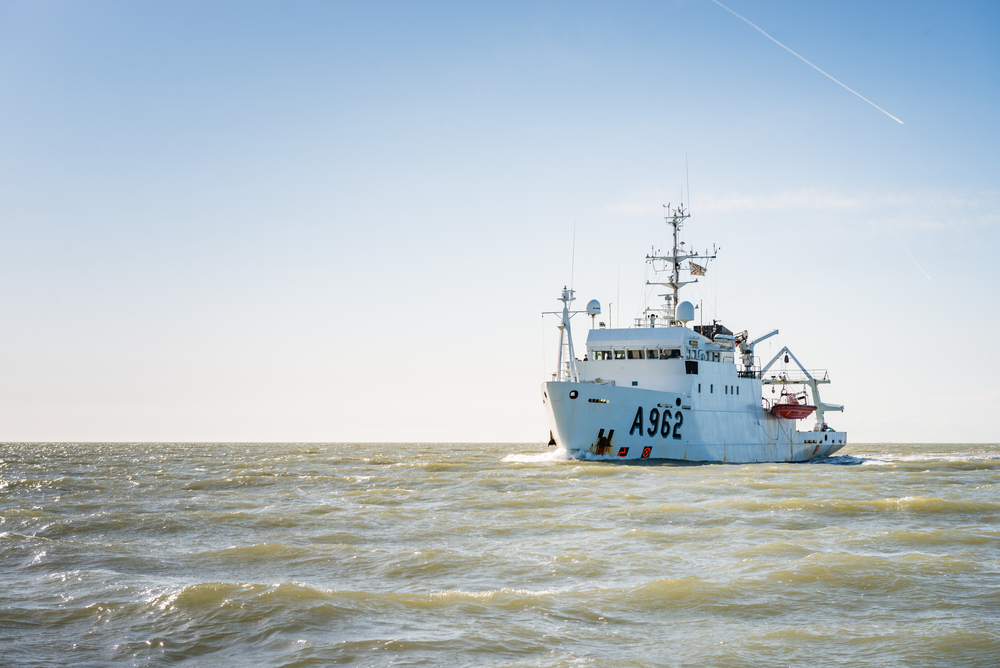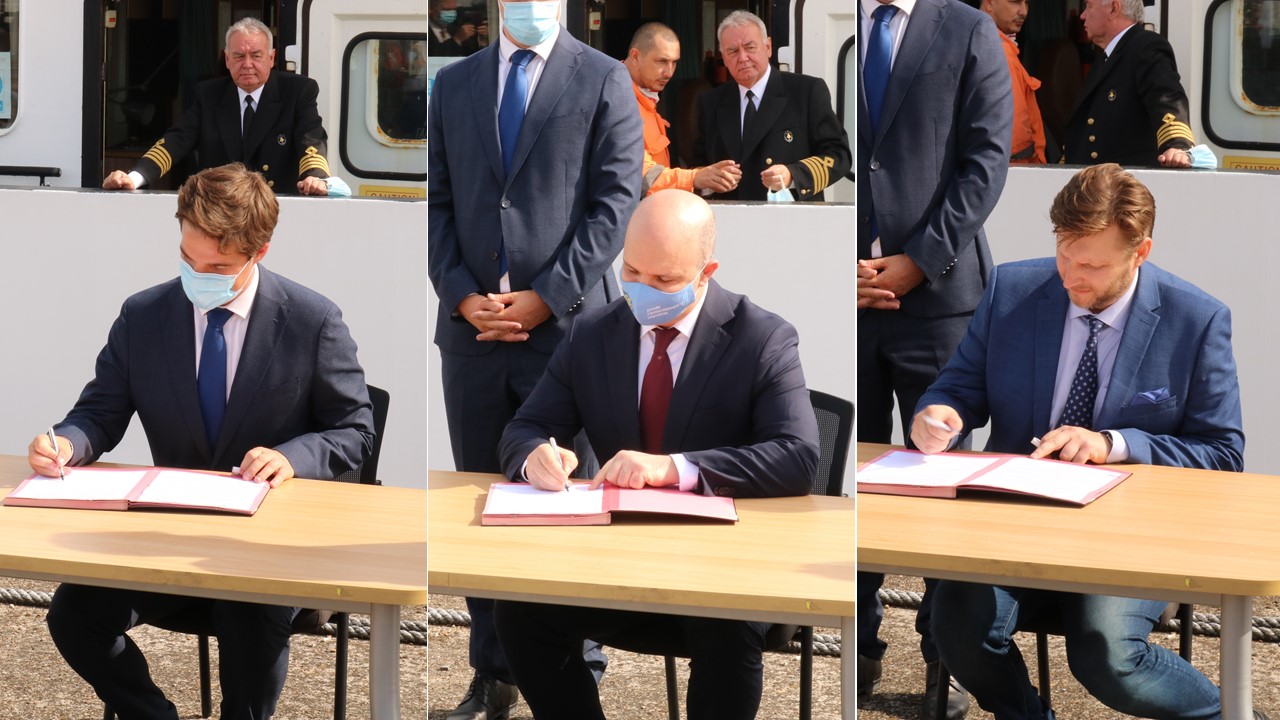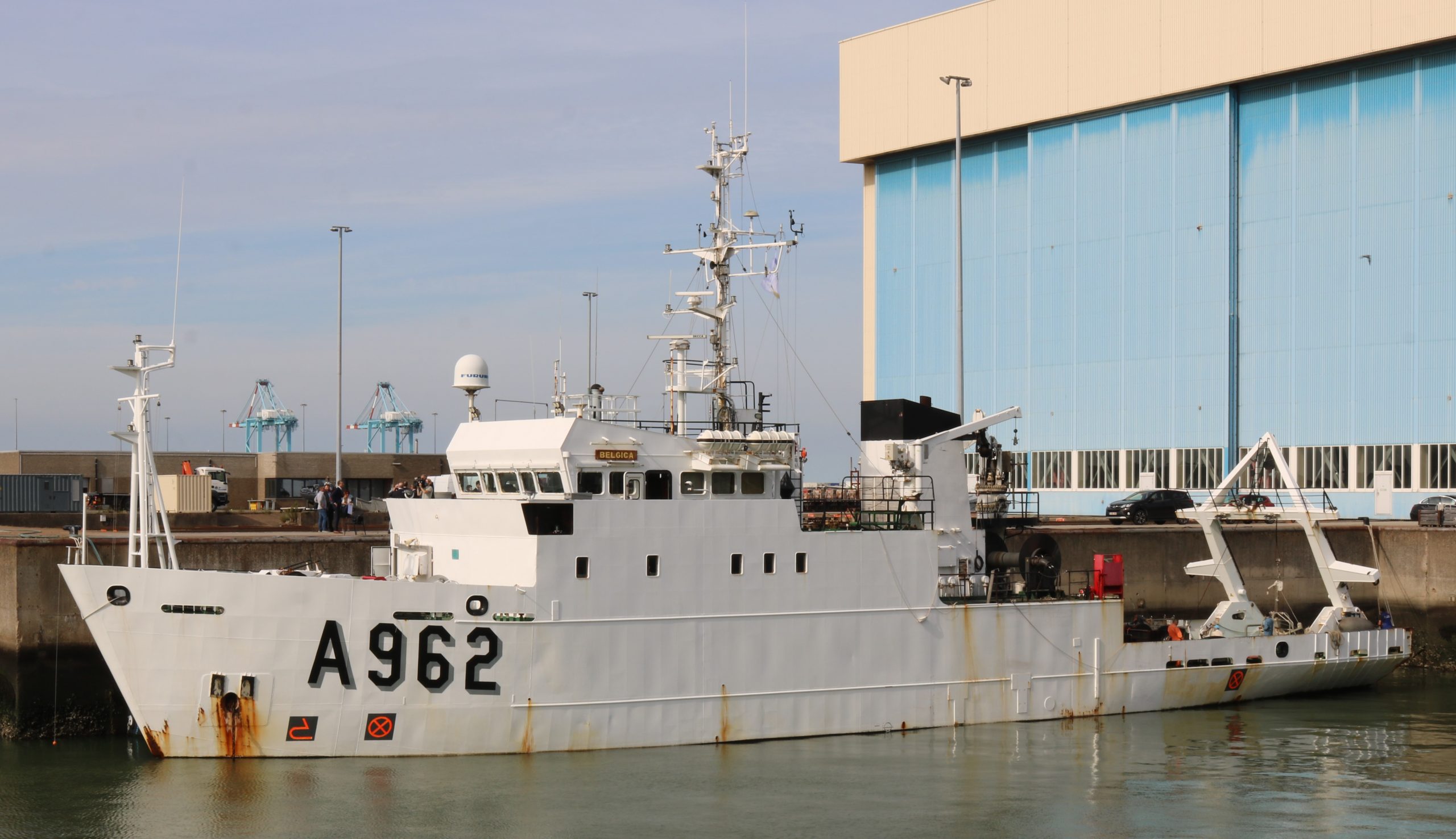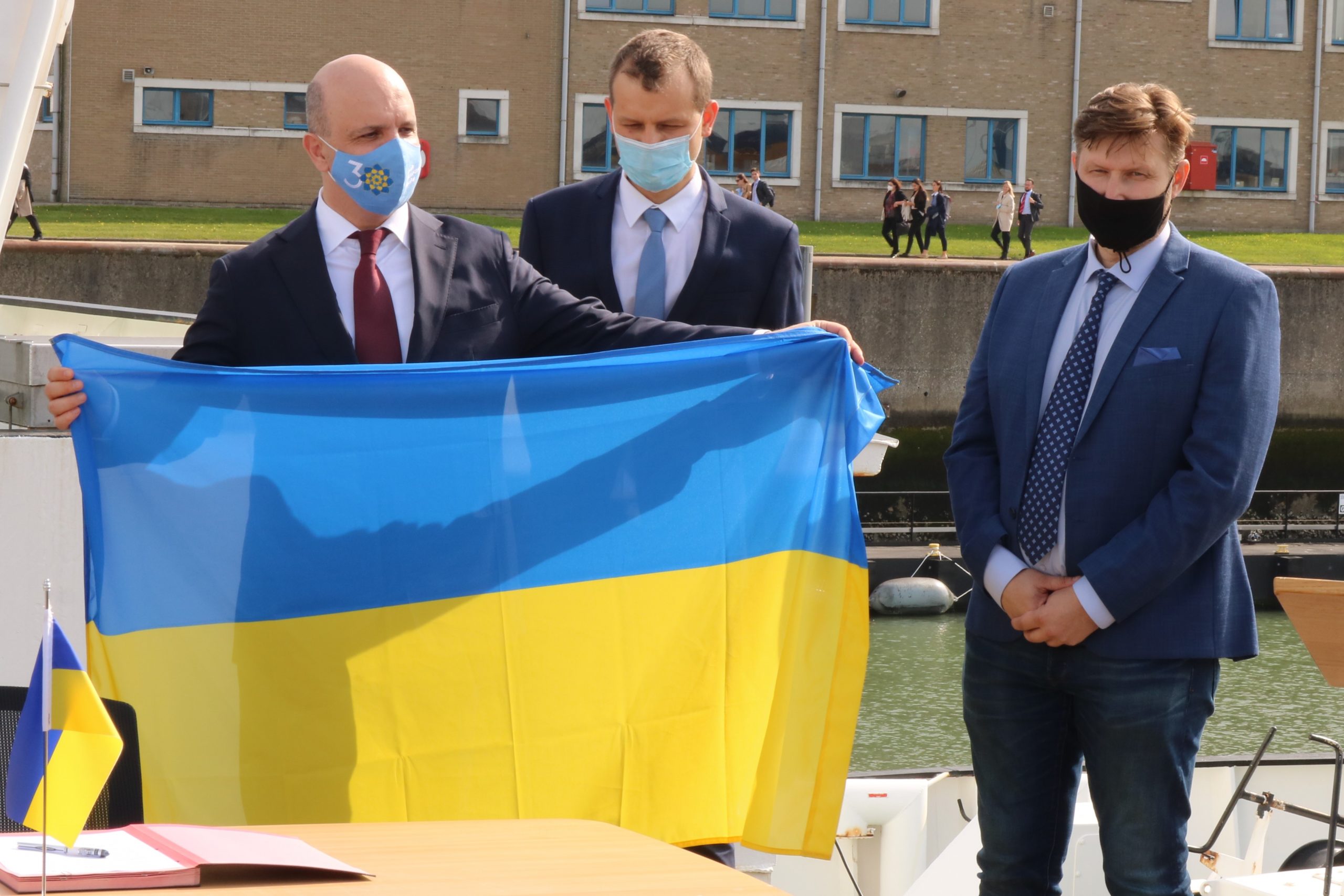On 13 September 2021, the agreement was signed for the transfer of the legendary research vessel Belgica from the Belgian to the Ukrainian authorities. A few days later, the ship will start her journey to her new home base in Odessa. During this transit, several scientific samples will be taken. In the Black Sea, the ship will continue to do what she does best: carry out scientific research and monitor the state of health of the sea. On this basis, measures can be defined that should lead to the ecological recovery of the Black Sea.

On Monday 13 September 2021, Mr. Thomas Dermine, State Secretary for Economic Recovery and Strategic Investments, in charge of Science Policy, Mr. Roman Abramovskyy, Minister of Environmental Protection and Natural Resources of Ukraine, and Mr. Viktor Komorin, Director of the Ukrainian Scientific Centre of the Ecology of the Sea, signed the agreement for the transfer of the research vessel Belgica from the Kingdom of Belgium to Ukraine. This followed a Memorandum of Understanding signed in July 2021 between the Federal Science Policy Office (BELSPO), the Royal Belgian Institute of Natural Sciences (RBINS) and the Ministry of Environmental Protection and Natural Resources of Ukraine.
State Secretary Thomas Dermine: “After more than one million kilometres travelled and more than 1,000 scientific campaigns to increase knowledge of the seas, Belgium bids farewell to the research vessel Belgica today. As a sailing laboratory, the ship was the flagship of Belgian marine science for 37 years. It is with pain in our hearts that we say goodbye, but I am very happy that the ship will have a second life thanks to our cooperation with the Ukrainian Scientific Centre of the Ecology of the Sea“.

An Invaluable Legacy
The importance of a performant national research vessel cannot be underlined enough. As a multidisciplinary research vessel, the RV Belgica was able to support scientific research in the fields of fisheries, biology, geology, climate and chemistry, and Belgium was able to punch above its weight class in terms of marine research and monitoring, marine spatial planning and blue economy. And that both at a national level and in an international context. The ship also gave thousands of students the opportunity to gain their first sea experience. Many of them acquired a taste for it to such an extent that they remained active in the various STEM (Science, Technology, Engineering and Mathematics) sectors, often rising to managerial positions.
Vincent Van Quickenborne, Deputy Prime Minister and Minister of the North Sea: “The Belgica is an icon in the research world and has been of inestimable value for North Sea policy. Among other things, she was responsible for monitoring the effects of sand extraction, wind farms and the munitions dump on the Paardenmarkt. Her field of work was also much broader than our North Sea. For example, she discovered cold water coral mounds beyond Ireland and mud volcanoes off the coast of Morocco. With the new Belgica, there will be a worthy successor to continue the work of the ‘old white lady’.”

A New Life in the Black Sea
After 37 years of active service, the RV Belgica completed her last campaign as a Belgian oceanographic research vessel on 25 March 2021. Although Belgium will welcome a new state-of-the-art Belgica in the late autumn of 2021, the farewell of the ‘old white lady’ is tough.
On 16 September, the RV Belgica will leave her traditional berth in the Zeebrugge naval base and become officially Ukrainian property. Ukraine did not have an operational ship suitable for oceanographic research in recent times but has great ambitions in this field. From now on, the Belgica will strengthen the monitoring of the marine environment in the Black Sea region, and thus will be of great importance for the implementation of the EU Marine Strategy Framework Directive, which is part of the EU-Ukraine Association Agreement. Moreover, in the longer term, monitoring will contribute to the establishment of an evidence-based programme of measures and thus to the restoration of the state of the Black Sea. As a follow-up, joint Belgo-Ukrainian surveys are also planned in both the Black Sea and the North-East Atlantic.
On the Ukrainian side, Minister Abramovskyy said: “We are very grateful to the Belgian Party for such an important gift to Ukraine. With the help of the research vessel Belgica, we plan to resume monitoring in the open waters of the Black Sea as early as this year.“

The ‘First’ Cruise
In the coming days, the ship will start her journey from Zeebrugge to her new Ukrainian home port Odessa. During the 8 600 km voyage, Ukrainian scientists will be active right away. They will collect seawater and bottom sediment samples for analysis of a wide range of pollutants, document floating marine debris and microplastics, take environmental DNA samples for biodiversity assessment and analyse microbial DNA to reveal the presence of antibiotic resistance genes. This ambitious scientific programme, entitled “Cruise of Three European Seas” (North East Atlantic, Mediterranean and Black Sea), as well as the transfer of the vessel, is organised and funded by the EU/UNDP project “European Union for Improving Environmental Monitoring of the Black Sea” (EU4EMBLAS), and scientifically supported by the EU Joint Research Centre.
Defence Minister Ludivine Dedonder: “For 37 years, Defence deployed the Belgica in the service of scientific research at sea. The ship is now being transferred to Ukraine to start a second career as a scientific research vessel. I am pleased to know that the Belgica – albeit under a different name – is heading for new scientific assignments. We expect the successor to arrive in Belgium shortly and we will continue our good cooperation with the Federal Science Policy and the Royal Belgian Institute of Natural Sciences.”
The Belgica is expected to arrive in Ukraine in mid-October 2021. There, the ship will be renamed, and then begin her operations in the Black Sea region.
